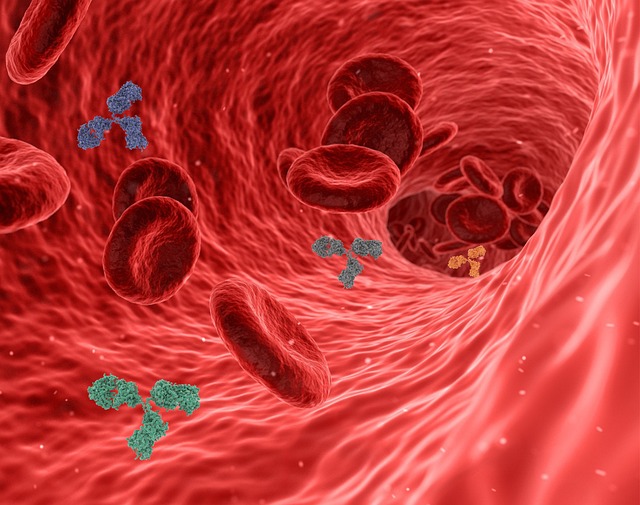Introduction
In today’s fast-paced world, maintaining a strong immune system is essential for overall health and well-being. With increasing exposure to stress, pollution, processed foods, and sedentary lifestyles, our immunity can take a hit, leaving us vulnerable to infections and chronic diseases. Fortunately, there are numerous natural ways to strengthen your immune system and enhance your body’s ability to fight off illnesses. This article explores effective, science-backed strategies to improve your immune system naturally.
1. Eat a Balanced and Nutrient-Rich Diet
Your immune system relies heavily on the nutrients you provide through your diet. Key vitamins and minerals support immune cell function and help protect against pathogens.
- Fruits and Vegetables: Rich in vitamins A, C, and E, as well as antioxidants and fiber. Include citrus fruits, berries, spinach, kale, carrots, and sweet potatoes.
- Whole Grains and Legumes: Provide B vitamins, zinc, and selenium. Opt for oats, brown rice, lentils, and beans.
- Lean Proteins: Essential for the repair and production of immune cells. Include fish, chicken, tofu, and legumes.
- Healthy Fats: Omega-3 fatty acids found in flaxseeds, walnuts, and fatty fish like salmon have anti-inflammatory properties.
- Fermented Foods: Yogurt, kefir, kimchi, sauerkraut, and miso support gut health, which is closely linked to immune function.
2. Stay Hydrated
Water plays a critical role in supporting all bodily functions, including the immune system.
- Flushes Toxins: Adequate hydration helps remove toxins from the body, reducing the burden on the immune system.
- Supports Lymphatic System: Proper hydration ensures the lymphatic system works efficiently to circulate white blood cells and nutrients.
3. Get Regular Exercise
Moderate exercise can give your immune system a boost.
- Increases Circulation: Helps immune cells move through the body more efficiently.
- Reduces Inflammation: Lowers markers of inflammation and stress hormones.
- Improves Sleep: Physical activity promotes deeper, more restful sleep.
Examples of Moderate Exercise:
- Brisk walking
- Cycling
- Swimming
- Yoga
4. Get Enough Sleep
Sleep is a vital component of a strong immune system.
- Cellular Repair: The body repairs and regenerates cells during deep sleep.
- Cytokine Production: During sleep, the body produces cytokines, proteins that fight infection and inflammation.
Tips for Better Sleep:
- Maintain a regular sleep schedule
- Limit screen time before bed
- Create a relaxing bedtime routine
- Avoid caffeine late in the day
5. Manage Stress Effectively
Chronic stress can suppress the immune response.
- Reduces Immune Cell Function: Stress hormones like cortisol lower the number of white blood cells.
- Increases Inflammation: Prolonged stress is linked to inflammation, which impairs immune response.
Effective Stress Management Techniques:
- Deep breathing exercises
- Meditation and mindfulness
- Journaling
- Engaging in hobbies
- Spending time in nature
6. Maintain a Healthy Weight
Excess body fat, particularly around the abdomen, is associated with inflammation and impaired immunity.
- Balanced Diet and Exercise: Combine healthy eating with regular physical activity.
- Avoid Crash Diets: Focus on sustainable changes instead of extreme measures.
7. Avoid Smoking and Limit Alcohol Consumption
Both smoking and excessive alcohol consumption can weaken your immune system.
- Smoking: Damages lung tissue, impairs immune responses, and increases susceptibility to infections.
- Alcohol: Interferes with the immune system’s ability to defend against pathogens.
Tips for Quitting:
- Seek professional help or counseling
- Join support groups
- Replace unhealthy habits with positive activities
8. Boost Gut Health
A large portion of the immune system is located in the gut.
- Probiotics: Found in yogurt, kefir, and fermented foods, they help balance gut bacteria.
- Prebiotics: Fibers that feed healthy bacteria, found in garlic, onions, bananas, and asparagus.
9. Get Adequate Sunlight and Vitamin D
Vitamin D plays a crucial role in immune function.
- Sunlight: Spend 10-30 minutes in sunlight several times a week.
- Supplements: Consider Vitamin D3 supplements, especially in winter or low-sunlight regions.
10. Practice Good Hygiene
Preventing infections helps reduce the load on your immune system.
- Wash Hands Frequently
- Avoid Touching Face
- Maintain Clean Environments
Conclusion
Improving your immune system naturally involves a holistic approach that includes a balanced diet, regular physical activity, sufficient sleep, stress management, and healthy lifestyle choices. By incorporating these science-backed strategies into your daily life, you can enhance your body’s natural defenses and promote long-term health. Remember, consistency is key—small, sustainable changes can lead to significant benefits over time.
